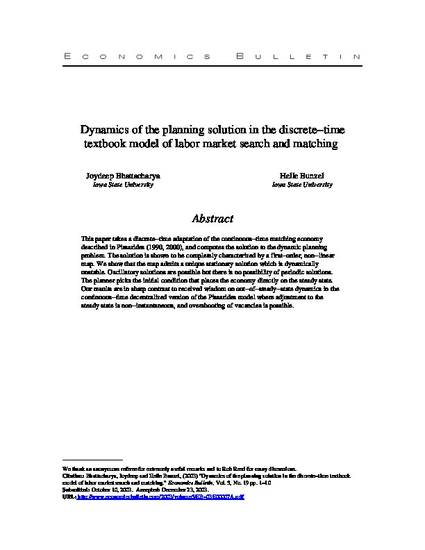
This paper takes a discrete−time adaptation of the continuous−time matching economy described in Pissarides (1990, 2000), and computes the solution to the dynamic planning problem. The solution is shown to be completely characterized by a first−order, non−linear map. We show that the map admits a unique stationary solution which is dynamically unstable. Oscillatory solutions are possible but there is no possibility of periodic solutions. The planner picks the initial condition that places the economy directly on the steady state. Our results are in sharp contrast to received wisdom on out−of−steady−state dynamics in the continuous−time decentralized version of the Pissarides model where adjustment to the steady state is non−instantaneous, and overshooting of vacancies is possible.
Available at: http://works.bepress.com/joydeep_bhattacharya/4/

This is an article from Economics Bulletin; May 2003; 5(19); 1-10. Posted with permission.